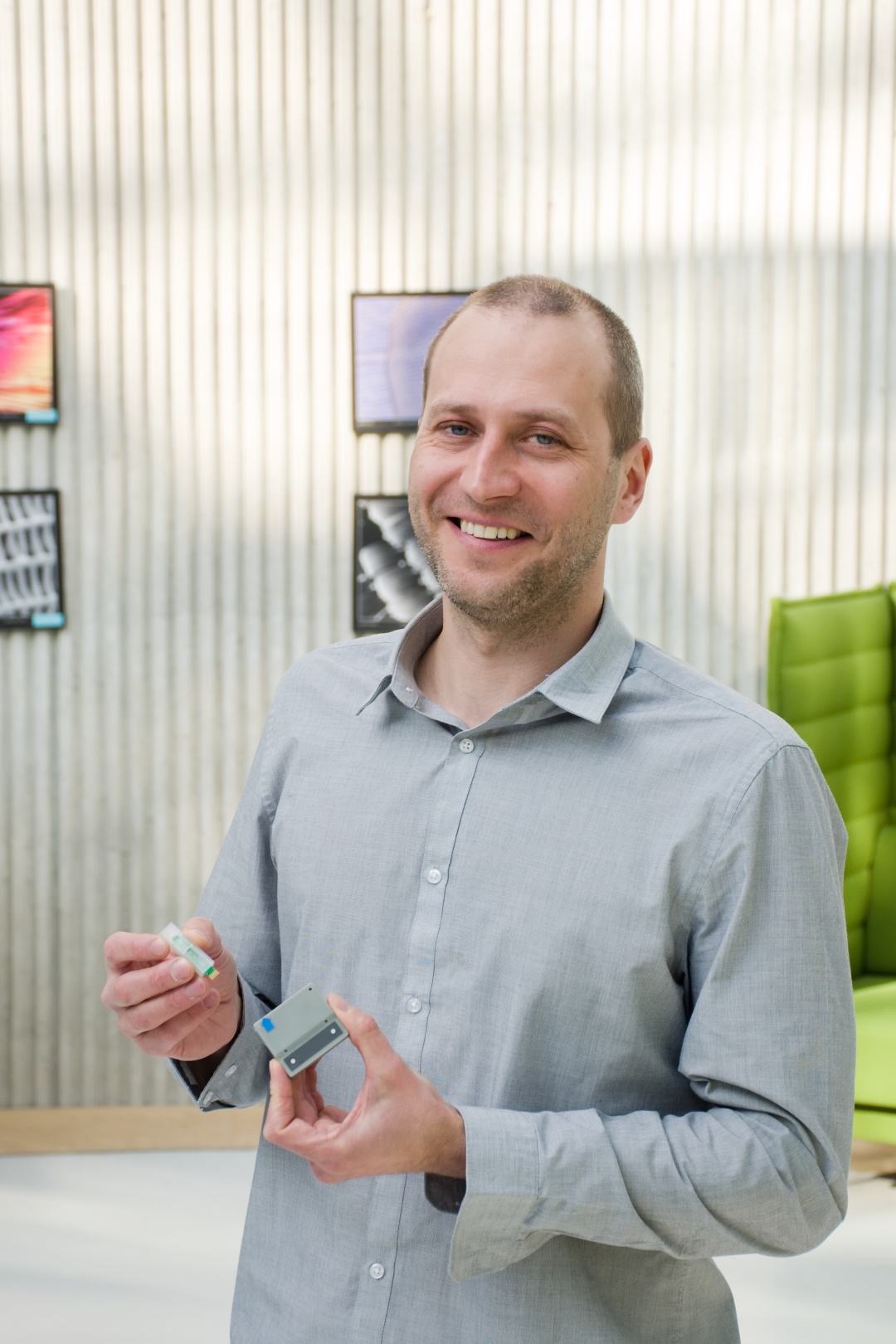22. Apr. 2025
A unique diagnostic device capable of rapidly and sensitively detecting chlamydial infections – one of the most common sexually transmitted infections (STIs) – is at the heart of a new spin-off company founded by scientist Karel Lacina. The foundation for the company was laid thanks to his research and the technological infrastructure of CEITEC MU and the Faculty of Science at Masaryk University (MU).
The technology behind the device has been in development for nearly a decade, specifically within research at CEITEC MU. A breakthrough in the development occurred a few years ago when the measurement procedure of the electrochemical biosensor was optimized to the point where the test results became not only reproducible but also accurate enough for further development toward practical application. “The device works by measuring changes in the electrochemical signal depending on the presence of the target substance – in this case, chlamydia. One of its advantages is that it provides not only a qualitative result but also semi-quantitative information,” explains Karel Lacina, who is now advancing the commercialization of the technology through the newly established company ACTOSens s.r.o.
The diagnostic device allows users to quickly and easily determine whether a person is infected and how intense the infection is. It can be imagined as a home pregnancy test – a urine sample is applied to a test strip. If bacteria causing the infection are present in the body, the device detects it within minutes and provides the result in digital form. The technology has broad potential – by adjusting certain components, it could be adapted to detect other sexually transmitted diseases or even other infectious diseases. The current priority is to complete the validation of the chlamydia test in real-world, non-laboratory conditions. “We’re pleased that this technology developed through CEITEC research is heading toward real commercial application. Knowledge and technology transfer to practice is an important part of our mission, and we support it as a natural continuation of our researchers’ work,” says Pavel Plevka, Director of CEITEC Masaryk University.
 The spin-off company is also being established thanks to support from the Faculty of Science at Masaryk University, where Karel Lacina was active when the device transitioned from a laboratory prototype toward practical use. At that time, he received “proof of concept” support from the Masaryk University Technology Transfer Office, which enabled the device’s miniaturization and the creation of its third generation. Recently, the project also secured financial support from the innovation agency JIC, which will enable the device to be tested on real samples outside the laboratory. The aim is to verify the device’s functionality on around sixty clinical samples and collect data for further certification and market entry. “During development, we also worked with electronics experts from the Brno-based company VELZA, which is involved in the device’s construction, and we are preparing to test the device on real samples in cooperation with the Department of Microbiology at St. Anne’s University Hospital Brno,” adds Karel Lacina.
The spin-off company is also being established thanks to support from the Faculty of Science at Masaryk University, where Karel Lacina was active when the device transitioned from a laboratory prototype toward practical use. At that time, he received “proof of concept” support from the Masaryk University Technology Transfer Office, which enabled the device’s miniaturization and the creation of its third generation. Recently, the project also secured financial support from the innovation agency JIC, which will enable the device to be tested on real samples outside the laboratory. The aim is to verify the device’s functionality on around sixty clinical samples and collect data for further certification and market entry. “During development, we also worked with electronics experts from the Brno-based company VELZA, which is involved in the device’s construction, and we are preparing to test the device on real samples in cooperation with the Department of Microbiology at St. Anne’s University Hospital Brno,” adds Karel Lacina.
The spin-off company is now focused not only on finalizing the device’s development and obtaining certification under medical legislation (IVDR) but also on negotiations with investors. The commercial application and broader impact of this technology could significantly facilitate early infection detection and improve diagnostic accessibility in practice.
ACTOSens s.r.o. is the second company established through the Masaryk University subsidiary MUNI Ventures s.r.o.


 Share
Share